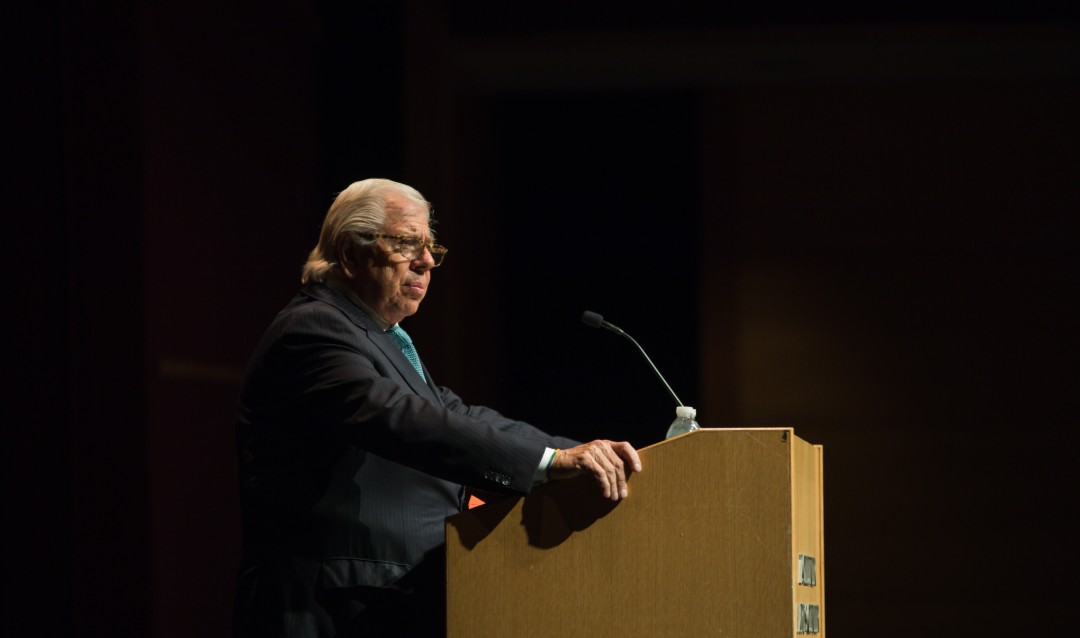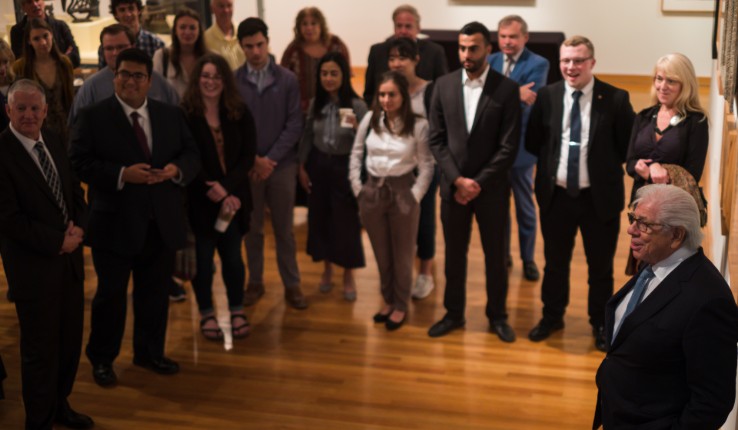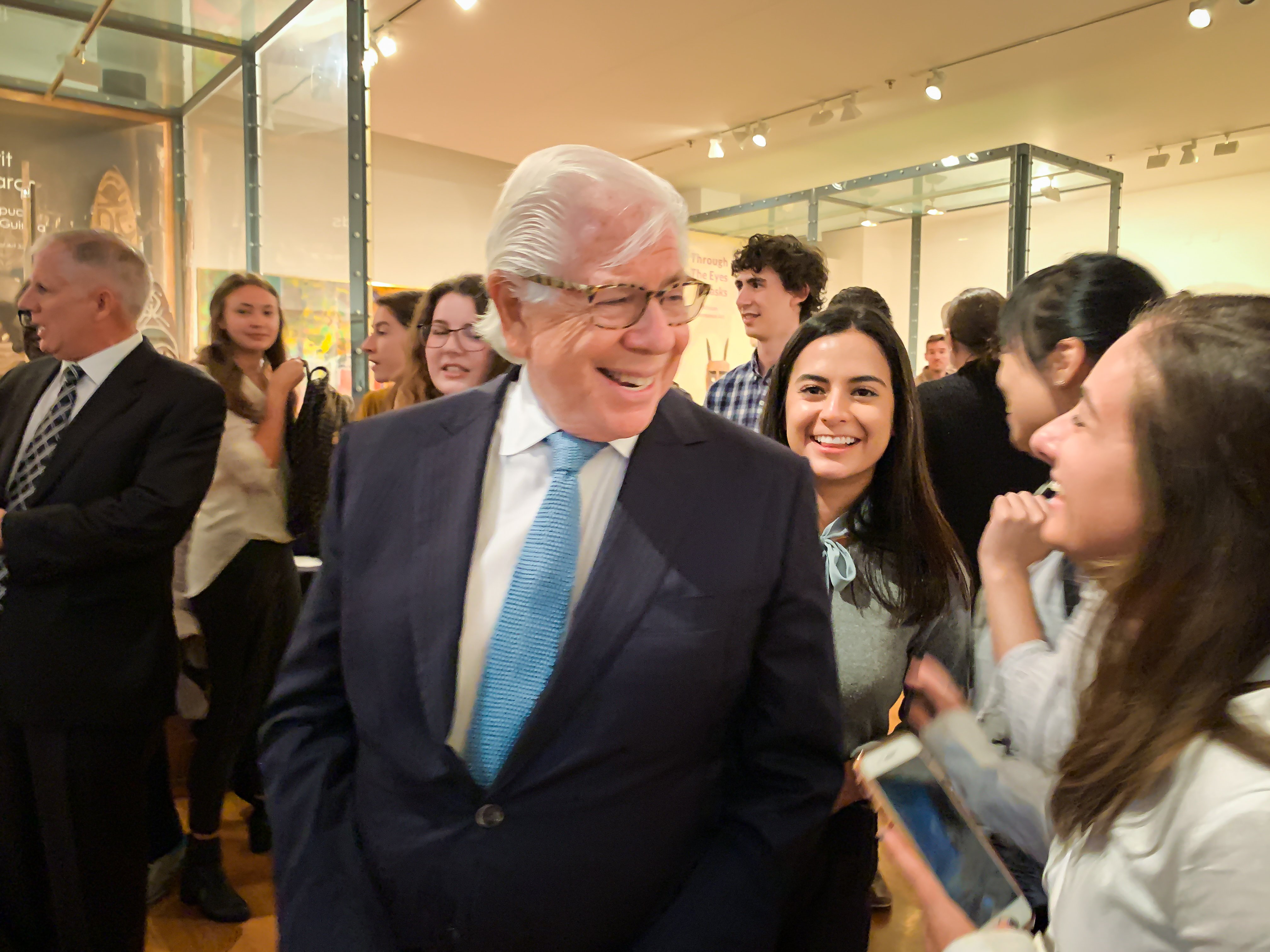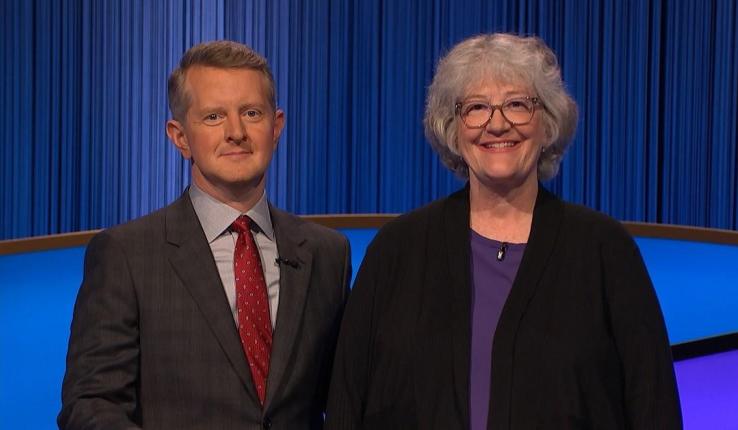‘A Cold Civil War’
While the comparisons between Nixon and Trump are striking, Bernstein said, a broader view of the divisive issues facing the country are needed at this particular moment. “We are in the midst of a cold civil war,” he said. “It began probably 20 or 30 years ago, and it’s been brought to ignition and turned into a cauldron during the Trump presidency.” Some of that blame lies with Trump, who, unlike any president in our history, never pretended to serve anyone but his base, he said, and some blame lies with the diminution of many institutional pillars of the country, including education, technology, entertainment, health care and others. “So Trump wasn’t altogether wrong in what he said to appeal to some voters. It’s just that it’s led to a level of authoritarianism and nativism such as we’ve never seen in the United States.”
Bernstein suggested that aspiring journalists appreciate the value of context. “Facts strewn about are not truth, especially in isolation of the big picture.” Nor should journalists see their role to intentionally work toward a desired political outcome, such as the removal of a president, he said. “Their job is to report the truth. It’s the job of the people to make their decisions, hopefully based on good reporting.”
Several years ago, Bernstein said, he and Woodward addressed the Washington Press Corps, and said that their best advice for journalists was to follow the money, follow the lies. “And it’s still the best advice,” he said.
After his talk, Bernstein fielded a series of questions, including one that seemed to be repeated in different forms: How can Trump keep getting away with behavior that would have ended the careers of other politicians?
“The system isn’t working,” Bernstein said. “In some measure, it’s because this ongoing cold civil war we’re in isn’t letting it. We are divided into two polarized cultures, and with that comes something way beyond sensible debate. There is an enormous amount of anger and hate involved. And let’s not kid ourselves about Donald Trump and his role in this: Hate is the piston of this presidency. This isn’t the Watergate era. This is a different era, in which our institutions don’t work. We have a terrible problem right now.”
Bernstein was introduced by Brian Fife, professor and chair of the political science department, who said that through his extraordinary work unearthing the Watergate scandal, “Carl Bernstein set the standard for modern investigative reporting.”
The Rocco J. Tresolini Lectureship in Law was established in 1978, in memory of one of Lehigh’s most distinguished teachers and scholars, Rocco Tresolini (1920-1967), who served as professor and chair of the department of government. Bernstein follows several impressive speakers selected to deliver the Tresolini Lecture. These include veteran journalist Bill Moyers, public intellectual Cornel West, U.S. Attorney General Janet Reno, legendary investigative journalist Seymour Hersh, former Vietnam War-era strategic analyst Daniel Ellsberg, Presumed Innocent author Scott Turow, U.S. Supreme Court Justice Antonin Scalia, former Watergate-era White House Counsel John Dean, Bush v. Gore attorney David Boies and Innocence Project founder Barry Scheck.








